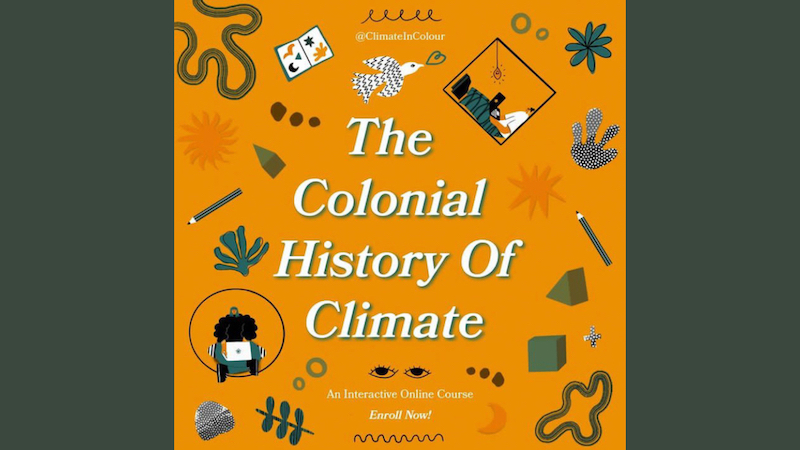Having a global understanding of climate change is critical, particularly one that uplifts the perspectives of communities most impacted and on the frontlines of equitable solutions efforts. The Sunflower News team highly recommends The Colonial History of Climate to bolster your environmental work and help you challenge structures at the source of the crisis.
A one-hour course from Climate in Colour’s Joycelyn Longdon, The Colonial History of Climate is a self-paced online workshop experience exploring the interconnectedness of climate, science, and imperialism. It provides an important global perspective on the foundations of our current climate crisis and the source of systematic environmental racism and Green Colonialism in climate action solutions and conversations that persist today.
Sunflower News publisher Marshall Kirkpatrick stated: “These are topics I’ve felt well-informed about already, but this course was full of information that was new to me or newly articulated in very helpful ways.”
Seven short modules explore important history and context for today’s crisis, including:
- How climate differences in global regions informed imperial behaviors
- How the study of climatology and meteorology was utilized to displace Indigenous knowledge
- The colonial efforts to control climate in tropical regions and their impacts
- How covert colonialism, or neocolonialism, shows up in modern climate actions
Each section includes reflections to help you integrate new information, push the boundaries of your understanding, and consider how you can help challenge behaviors that reinforce historic colonial thinking today.
Longdon told our team: “One of the main sources of pride for me has been the engagement of small businesses, large organisations, schools, and academic institutions with the course and the content.” She said it has had an impact beyond the individual, including inspiring wider access to the Oxford University Doctoral Training Programme in Environmental Research and widening education in global and local climate injustices and efforts for a national climate change fund.
Longdon plans to revamp the course over the next couple of years, making it more accessible and reach more people. “My vision is that a good understanding of the colonial history of climate and the ways in which it continues to influence injustices today forms the foundation of people’s engagement in climate and environmental action.”
Having a comprehensive global understanding of the climate crisis is vital to our collective work in the climate movement space. Please take an hour out of your day to add this incredible resource to your knowledge base. You’ll be glad you did.

